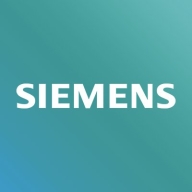

IBM Engineering Lifecycle Management and Polarion ALM compete in the software lifecycle management market. IBM ELM has the upper hand with its stronger feature set and scalability, while Polarion ALM stands out for its cost-effectiveness and ease of integration.
Features: IBM ELM offers comprehensive lifecycle management with strong requirements and change management, excellent scalability, and integration with IBM products. It supports detailed customization, making it suitable for larger enterprises. Polarion ALM provides robust traceability, real-time management features, and strong support for Agile and DevOps practices, making it user-friendly and appealing for medium-sized companies.
Room for Improvement: IBM ELM can be complex to deploy, requiring expertise and more user-friendly interfaces. Linear learning curves could hinder quick onboarding. Enhanced documentation for better user guidance. Polarion ALM needs improved out-of-the-box functionalities for better initial setup, enhanced customization options for detailed requirements, and stronger documentation handling for complex environments.
Ease of Deployment and Customer Service: IBM ELM involves a complex enterprise-oriented deployment model, with robust support and consultation services for large-scale operations. Polarion ALM, in contrast, offers straightforward deployment, quick setup, and a responsive support team, suiting those seeking rapid implementation.
Pricing and ROI: IBM ELM generally comes with a higher initial cost due to its comprehensive features and scalability, promising significant long-term ROI for large enterprises. Polarion ALM’s lower entry cost and efficient deployment provide competitive ROI, appealing more to organizations with budget constraints and the need for immediate returns.


IBM Engineering Lifecycle Management stands out for its robust Agile Scrum planning, lifecycle traceability, and tool management, offering cloud-based configurability and strong collaboration features.
IBM Engineering Lifecycle Management provides rich capabilities for Agile project management, facilitating requirements and test management, configuration management, and version control. Its integration with IBM Doors supports comprehensive requirements handling, and the cloud-based platform enhances collaborative efficiency across teams. Despite needing advances in user-friendliness and reporting, ELM's global configuration and compliance features make it invaluable in demanding environments.
What are the key features of IBM Engineering Lifecycle Management?IBM Engineering Lifecycle Management is vital in sectors like automotive and manufacturing, where it implements Agile frameworks to manage requirements, conduct testing, and handle defects. It integrates into development pipelines ensuring live traceability and visibility, supporting critical engineering processes efficiently.
The world’s first 100% browser-based ALM enterprise solution, which enables seamless collaboration across disparate teams, multi-directionally linked work items, full traceability, accelerated productivity and automated proof of compliance.
We monitor all Application Lifecycle Management (ALM) Suites reviews to prevent fraudulent reviews and keep review quality high. We do not post reviews by company employees or direct competitors. We validate each review for authenticity via cross-reference with LinkedIn, and personal follow-up with the reviewer when necessary.